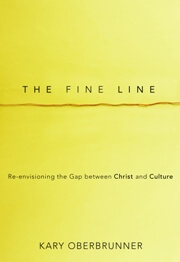Although twice as many Americans say they have no faith compared to 1990 there’s a new hope on the horizon.

According to a new study, detailed in the new American Religious Identification Survey (ARIS), released last week, traditional religion is playing less of a role in American life. More people are opting for non-religious weddings and funerals (30 and 27 percent respectively).
In just 18 years, the swing is significant, revealing that despite nearly 50 million adults added to the U.S. population by growth and immigration, almost all religious denominations have lost ground since the first ARIS survey in 1990.
Most significant-the percentage of Christians in the nation has declined, more than 11 percent in a generation. According to Cathy Lynn Grossman of USA TODAY, “the faithful have scattered out of their traditional bases: the Bible Belt is less Baptist … the Rust Belt is less Catholic … and everywhere, more people are exploring spiritual frontiers – or falling off the faith map completely.”
In fact, the number of people who say they have “no religion” has nearly doubled in the same time (8.2 percent in 1990 to 15 percent today).
This dilemma largely stems from how people perceive Christianity in the U.S. Unfortunately most people are only exposed to two types of Christians-Separatists and Conformists and neither option is very compelling.
In The Fine Line, published by Zondervan, I address these recent trends by exposing the two irrelevant camps of Christians fueling this disillusionment.
The first camp-the Separatists-are anti-everybody, anti-everything, and they retreat from culture. Their excessive rules are an attempt to escape the world. Those who lean toward the Separatist camp are guilty of certain characteristics. Three of the most common are that they allow: rules to replace relationships, microscopes to replace mirrors, and performance to replace passion.
Rules and Relationships: Rules give them the illusion of control. They allow Separatists to hide their hearts safely behind their lists of do’s and don’ts. By embracing ritualistic rules they inevitably forfeit a vibrant relationship with God.
Microscopes and Mirrors: Microscopes magnify the image of small objects. When used to examine cells in the science lab, this is a good thing. But microscopes shouldn’t be used to examine everything. Jesus warned, “Why do you look at the speck of sawdust in your brother’s eye and pay no attention to the plank in your own eye?” (Matt. 7:3). Unfortunately Separatists not only disregard this Scripture, but also their fellow Christians.
Performance and Passion: Separatists replace an inner passion for God with an outward performance for people. They fixate on out-doing others.
The second camp-the Conformists-are hypocrites, biblically shallow and consumers of culture. Their excessive desire for trendiness results in merely mimicking culture.
Those who lean toward the Conformist camp are guilty of certain characteristics. Three of the most common are that they allow: media to replace meditation, liberty to replace love, and tolerance to replace truth.
Media and Meditation: Conformists rarely take the time to get quiet before God. The average American is exposed to over 3,000 ads every single day. As a result, keeping our minds biblically and theologically sound is difficult to do. Conformists fall into the pattern of being amused-not even recognizing the meaning of the word or its impact on their lives. Amuse means “to not think.” Conformists might benefit by thinking a little bit more about why they don’t think.
Liberty and Love: No one likes to be restricted, especially Conformists. It’s easy to flaunt our freedom without considering how it affects others. Many Conformists have a personal vendetta against Separatists because they barely escaped their grip of control. As a result, Conformists enjoy their freedom and vow never to be subjugated to any individual or organization again. But many times they go too far and their freedoms quickly end up enslaving them. What started as a social drink here and there rapidly evolved into a love affair with hard liquor in order to cope with the stress of life. And what began as watching films that incorporated risqué images somehow transitioned into a steady diet of porn movies.
Truth and Tolerance: For Conformists truth is only true when it’s convenient. Besides who wants to come off as someone else’s judge? Conformists certainly don’t. Separatists are too narrow and so Conformists instead prefer a generous orthodoxy that incorporates anything and everything. In the process, their orthodoxy (meaning ‘right belief’) becomes anydoxy.
Thankfully there is an alternative.
Enter stage right the Transformists, a new breed of Christ followers who are in the world but not of it and more clearly mirror New Testament Christianity. Transformists embody the Scripture, which exhorts Christians to neither separate from culture nor conform to it, but rather to be “transformed by the renewing of their minds” (Romans 12:2).
The back-story of Transformists is quite convincing. For starters, they don’t need to have everything figured out, for that would mean they’re Separatists. They don’t need to say anything goes, for that would mean they’re Conformists. They neither add to God’s Word nor do they ignore it. Instead, they obey it.
They’re not perfect, but they’re seekers. They long to have a pure relationship with the Creator of the Universe. They desire to know the “why” behind the “what” and the purpose behind the principle. Of course there will be mistakes along the way, but this is what sets them apart. They have a little more grace and patience with each other, because they know what they’ve been saved from.
The movement is beginning. The gathering has united. They come from a variety of backgrounds, but share a common purpose. Above all else, they passionately love God and people. They don’t fear culture because they’re called to shape it. They don’t fear Christianity because they’re called to embody it. They are the Relevant. They are the Transformists.
Although initially the trend of ambivalence toward Christianity might seem disturbing, true followers of Jesus have an epic opportunity in these tough times to change the unconvincing stereotypes of Christianity set forth by Separatists and Conformists.
Despite nearly 2.8 million people identifying with dozens of new religious movements, calling themselves Wiccans, pagans or “Spiritualists”-such people are forced to re-evaluate their faith when they interface with Transformists and the undeniable grace and truth which defines them.
By integrating their faith with their culture Transformists are a breath of fresh air to both the world and the church. And because this remnant is walking the fine line of being in the world and not of it, there’s hope on the horizon once again.
(Excerpt from The Fine Line: Re-envisioning the Gap between Christ and Culture. Used with permission from Zondervan Publishing. ISBN: 0310285453)
Kary Oberbrunner, MDiv, DMin, is a self-proclaimed “Recovering Pharisee” and founder of Redeem the Day Ministries. The author of The Fine Line, Called, and The Journey toward Relevance, he serves as the Pastor of Discipleship and Leadership Development at Grace Church in Powell, Ohio. Kary and his soul-mate, Kelly, are blessed parents of Keegan and Isabel. Contact him at www.KaryOberbrunner.com.








Leave a Comment
You must be logged in to post a comment.